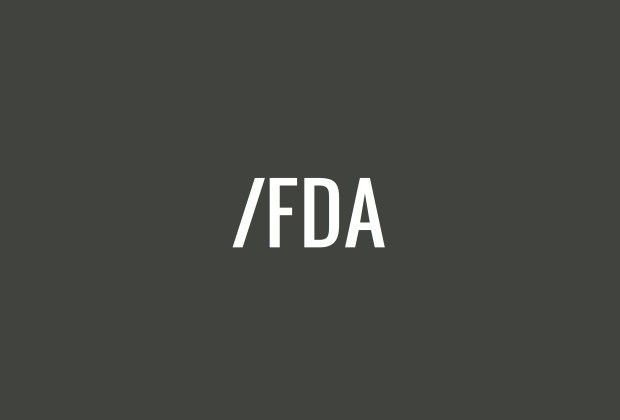Earlier this month, Dr. Scott Gottlieb, the nominee to head the U.S. Food & Drug Administration (FDA), testified in front of the Senate Health, Education, Labor and Pensions Committee as part of his confirmation.
While most of the roughly two-hour long hearing focused on the medical side of his potential role as FDA commissioner, particularly the pathway for medical device and drug approval and the opioid crisis, Gottlieb did take a few questions regarding tobacco.
Sen. Patty Murray, D-Wash., asked Gottlieb about whether he would ban flavored tobacco products, including flavored cigars, cigarettes and e-cigarette and vaping products.
“I am committed to proper implementation of (the Family Smoking Prevention and Tobacco Control Act),” said Gottlieb. “As a physician and a cancer survivor I’m not going to countenance a rise an adolescent smoking rates in this country under my watch and I’m going to make sure we implement the law and fulfill Congress’s intent in this law.”
“I think in a properly constructed and properly overseen regulatory process we should have the capacity under the authority that Congress gave us to make these determinations, I’m committed to make that work.”
Passed in 2009, the Family Smoking Prevention and Tobacco Control Act (TCA) gave FDA the authority to regulate cigars, pipes and other tobacco products, including e-cigarettes and vaping products. Last year, FDA announced it would regulate those products under a set of rules known as the deeming regulations, which went into effect Aug. 8.
Murray pressed him further about whether he would draw a line regarding flavored tobacco, something he acknowledged needed to be done, but declined to say where the line would be.
“I think the issues of flavor and all these other issues that deal with the specific qualities of the vaping products are those kinds of the empiric questions that I think career staff should be adjudicating in the Center (for Tobacco Products) and I want to provide the support to make these judgments and make sure that we are finding a way to fulfill Congress’ intent that there should be reduced harm products available that should transition them off combustible cigarettes.”
Much of the hearing, particularly from Democrats, focused on potential conflicts of interests Gottlieb might have as he is associated with dozens of companies that are subject to regulation under FDA, namely medical companies where Gottlieb has served as an investor and consultant, but also Kure, a vaping retail chain which Gottlieb is an investor.
In earlier parts of the hearing Gottlieb said he would recuse himself for at least one year from being part of any decisions at FDA that would affect companies he previously was associated with.
Sen. Al Franken, D-Minn., asked Gottlieb whether he would extend the period to two years, a standard proposed by the Trump administration for all of its nominees to recuse themselves from potential conflicts of interests due to financial ties to companies that might be impacted by their new government roles.
Gottlieb declined to commit to the two years, but said he would adhere to the advise imposed by ethics officials.
“I’m going to have a separate discussion if I am fortunate enough to be confirmed into this role with the ethics officials at FDA and (the Department of Health and Human Services) and they might very well impose additional requirements on me and I will follow whatever advice and counsel I get from those officials.”
While he was not asked specifically whether he would also recuse himself for at least one year regarding any decisions made on e-cigarettes, Gottlieb was consistent throughout the rest of his testimony that he would not be a part of any rule making for at least one year that could trigger conflict of interests concerns.
This could affect Gottlieb’s involvement in implementing or suspending regulations affecting cigars, as the deeming regulations apply to e-cigarettes, cigars, pipes and hookah tobacco products. While there are certain provisions of the regulations that only affect each category, many of the rules affect all products.
Gottlieb has been a prolific op-ed writer, something that was quoted and mentioned throughout the hearing. In 2012, he wrote an article for the New York Post arguing that cigars fell outside of the congressional intent of the Tobacco Control Act.
Even before it’s voted on, the bill may prompt the FDA to take a middle road: The agency could argue that the premium cigars fall within its jurisdiction as a “tobacco product,” but that, for now, it will exercise discretion and not regulate the high-end smokes.
Whatever the FDA does, the fight reveals a broader trend of expanding the scope of regulation to cover areas never envisioned by Congress.
Regulators often prefer to enlarge their jurisdiction rather than tend to their chief obligations. Agencies like the FDA thus divert their attention from important but basic duties.
For example, that 2009 tobacco law was crafted as a way to cut down on underage use of cigarettes. It was, in many respects, a forward-looking measure — envisioning that traditional cigarette makers would gradually transition to developing and marketing smokeless-tobacco products that don’t pose the same health hazards as cigarettes.
But the FDA has been loath to accept that alternative tobacco products could pose a lower health risk than cigarettes. Under the law, it should be examining the relative hazards, rather than spending its energies seeking to expand its powers.
Gottlieb could presumably still directly impact regulations on cigars without triggering a conflict of interest concern by simply choosing to modify or suspend the cigar-related portion of the deeming regulations, though he was not asked his opinion on cigars other than in the aforementioned context of flavored tobacco.
If confirmed, this will not be Gottlieb’s first stint at FDA, he previously served at the agency during the George W. Bush administration.
A vote on his confirmation has not been scheduled. Congress is in recess and the Senate will not reconvene until April 24.


